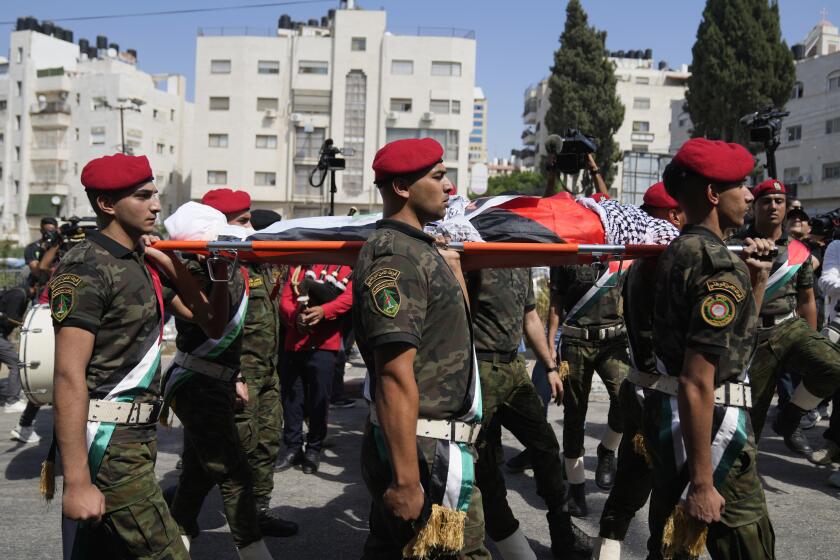In Gaza, battling an old scourge: Will polio vaccine campaign succeed?
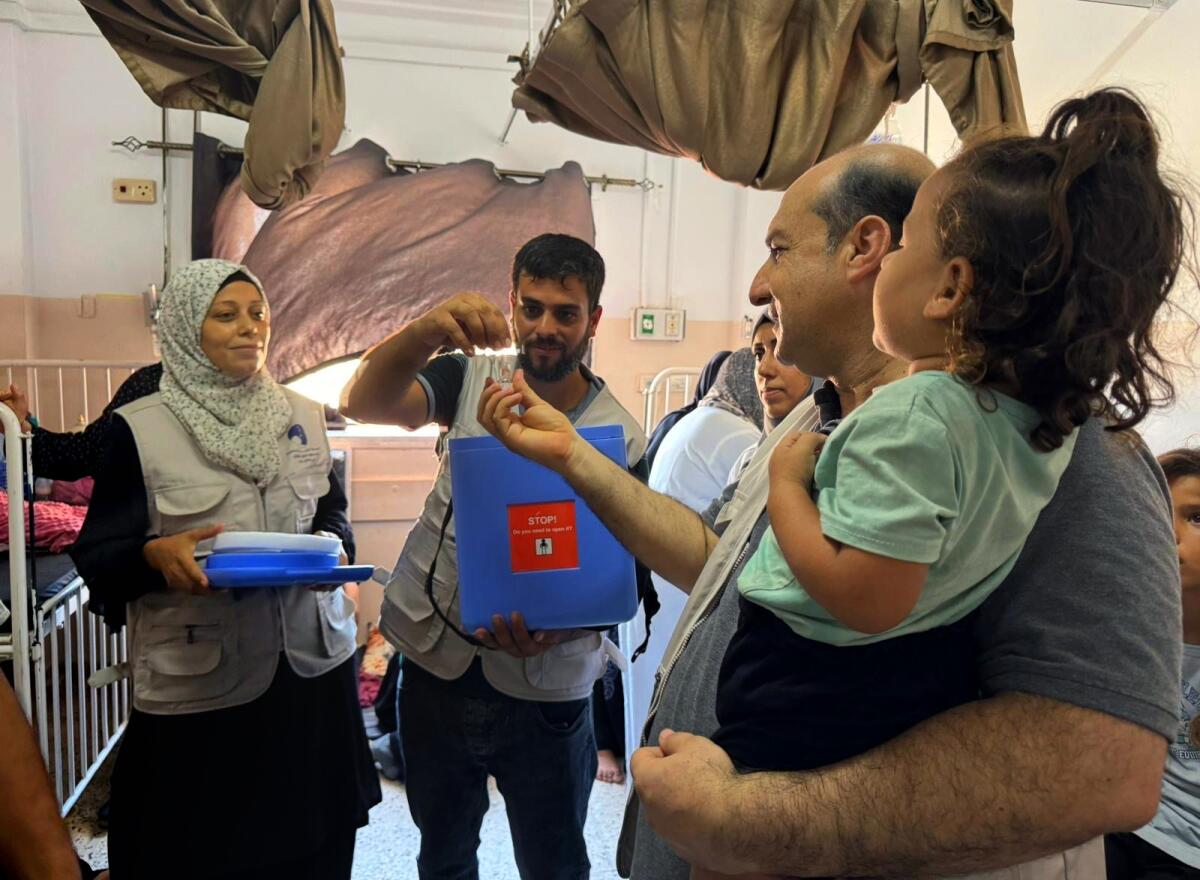
- Share via
KHAN YUNIS, Gaza Strip — A mother, terrified of traversing war-wrecked streets with her toddler, but more terrified of a devastating disease. A doctor, wondering whether each day of work might be his last. An infant in an unbearably hot tent struggling to move leaden limbs.
A polio vaccination drive in the Gaza Strip — prompted by the late-summer detection of the territory’s first known case in a generation — is nearing completion, and its organizers say it has been a vital but dangerous endeavor.
In the midst of a catastrophic war, authorities set out to vaccinate nearly 650,000 children under the age of 10 at risk of contracting poliomyelitis, a highly infectious disease caused by a virus that invades the nervous system.
Three-quarters of all cases are asymptomatic. Some cause fever and fatigue, headaches or vomiting. For a tiny fraction, the result is paralysis, potentially deadly if untreated.
As in much of the world, Gaza was for decades an area where polio was considered to have been eradicated.
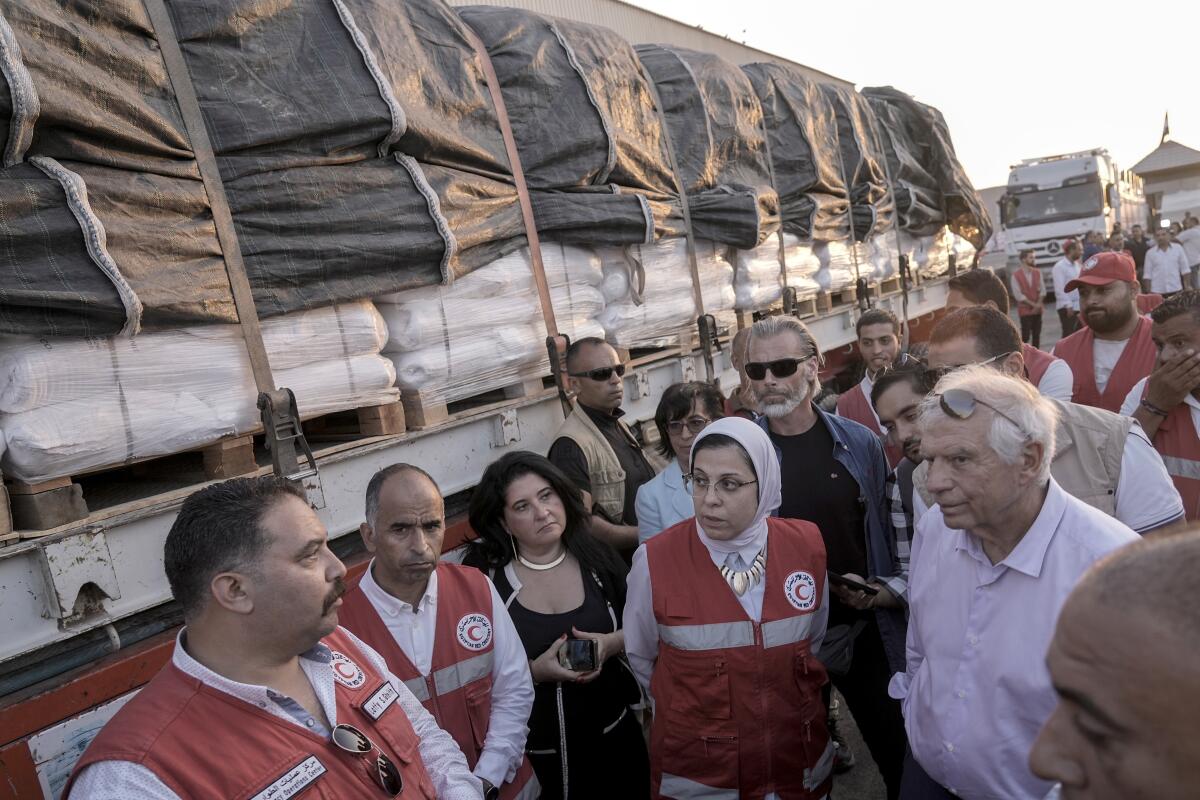
But humanitarian workers describe wartime conditions in the narrow coastal enclave as almost laboratory-perfect for the revival of the virus, which can be transmitted person to person from coughing and sneezing, or through food or water tainted by fecal matter.
Almost every part of Gaza is afflicted by miserably crowded conditions and nearly nonexistent sanitation infrastructure. In some areas, there might be one toilet available for 800 people. Among children, diarrhea is rampant.
Friends of American protester Aysenur Ezgi Eygi, who was shot to death during a West Bank protest, fear no one will be held accountable for her slaying.
Medical personnel say parents in Gaza are keenly aware that, war or no war, they must act to protect their children from this old scourge. Health authorities said that in order to be deemed successful, the vaccination drive needed to attain 90% coverage of the targeted children.
Before the war between Israel and the Palestinian militant group Hamas started in October, vaccine-compliance rates in the territory — not only for polio but other childhood diseases — were close to 100%.
“People are educated — they know their children can get sick very easily,” said Jonathan Crick, a Jerusalem-based spokesman for UNICEF, the world body’s agency for children. “Like any parent, they want to protect them, and they understand it is really important to vaccinate.”
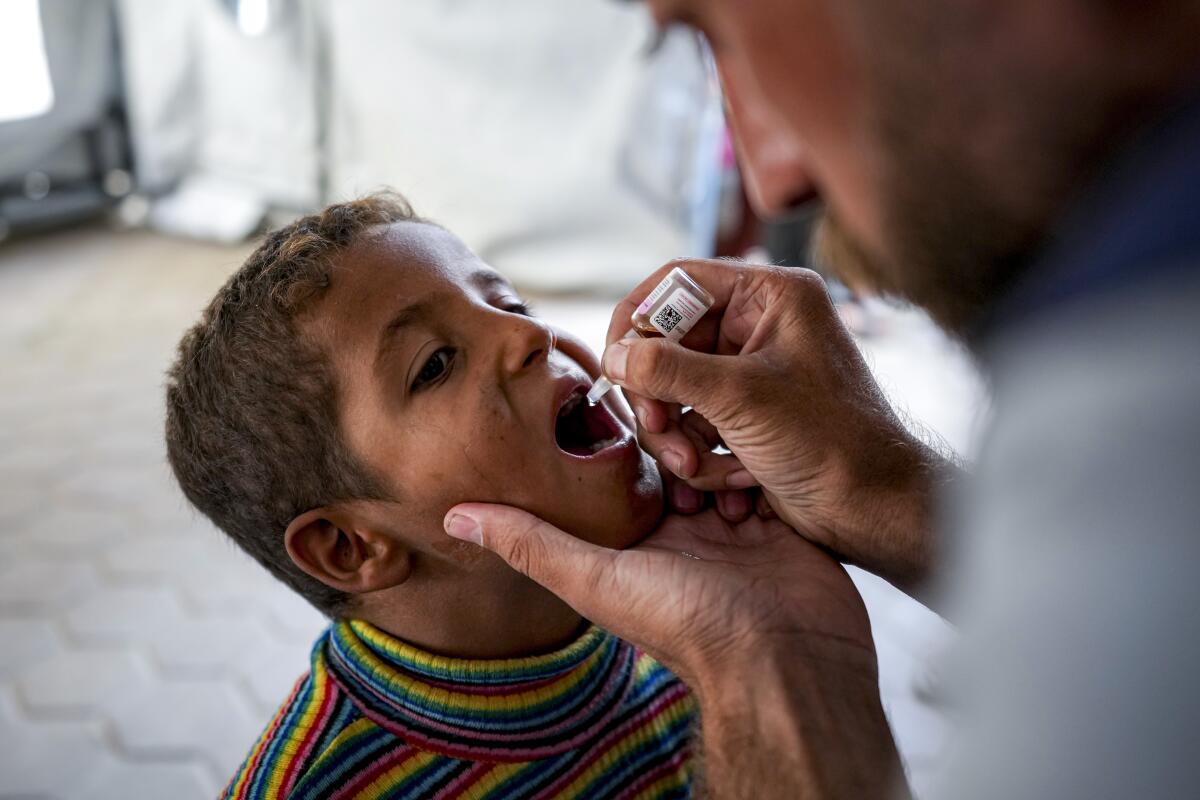
UNICEF and an array of Palestinian and international partners are procuring and supplying the vaccines. Logistical challenges abound.
Doses must be stored cold in a specific temperature range. They are being administered in barely functioning hospitals and clinics and simple medical tents that were set up among heavy concentrations of displaced people — or by nearly 400 mobile teams fanned out across the territory.
“We discussed and brainstormed all the needs,” said Dr. Majdi Dheir, the top Palestinian official working on the vaccination campaign.
The Palestinian militant group Hamas released a video of California-born Hersh Goldberg-Polin, who was killed with 5 other Israeli hostages in Gaza.
Medical staff had particular praise for mothers who brought their infants and toddlers to be vaccinated, even if travel was difficult and dangerous or if their families were in dire straits — displaced from bombed-out homes, coping with the death or injury of loved ones, struggling to obtain the most basic necessities such as food and drinking water.
“We trust Palestinian women, the linchpin of this vaccination campaign,” said Gaza’s deputy health minister, Dr. Yousef Abu Al-Rish.
One 23-year-old mother, Nermeen Mosbah Barbakh, said she was afraid that her 8-month-old daughter’s breathing difficulties — the result of other ailments — would make it impossible to administer the oral vaccine. But nurses at the Nasser Hospital in the southern city of Khan Yunis gently talked her through the procedure, and little Eman got her dose.
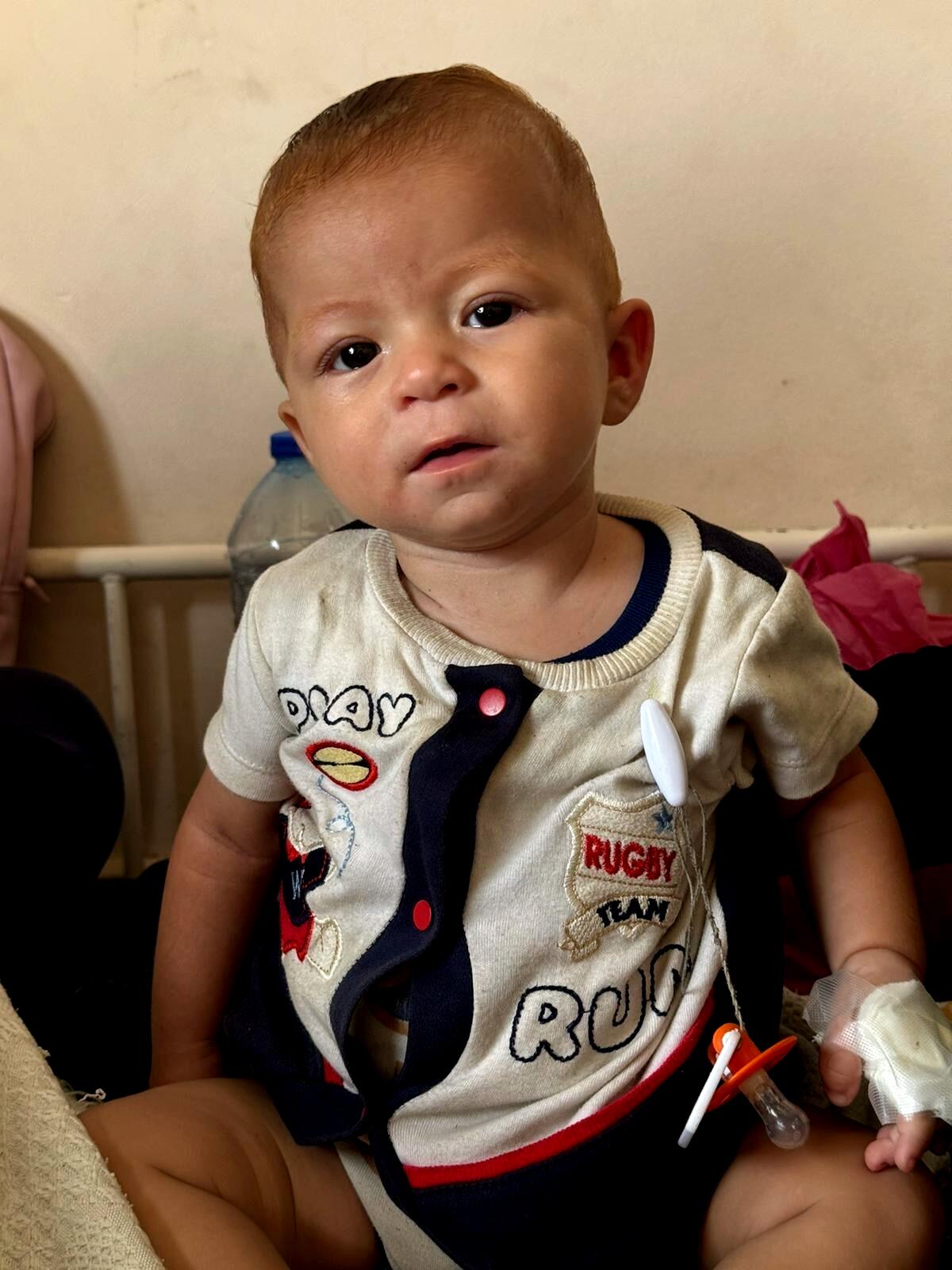
“I was scared of doing this, but now I’m relieved — this will protect all children, not only my daughter,” Barbakh said.
Nearly every day, though, some deadly new obstacle presents itself.
Overnight Monday, Israeli airstrikes hit a remote stretch of beach in southern Gaza called Mawasi, a formally designated humanitarian zone where thousands of displaced people were sheltering.
The Israeli military said it was targeting militants who had set up a command center in the area, but Palestinian officials, who do not distinguish between civilian and militant fatalities, reported at least 19 dead, including many women and children.
Harrowing videos from the scene showed rescuers digging frantically with shovels and bare hands, searching by the light of cellphones and flashlights for injured survivors buried in deep craters in the sand.
After the deaths of Israeli hostages, Prime Minister Netanyahu and the Palestinian militant group Hamas show no signs of budging on a cease-fire deal.
Mawasi is about 20 miles from northern Gaza, where the final round of vaccinations is taking place this week. But an attack targeting what had been deemed a protected area was a grim reminder that humanitarian pauses — on which this vaccination drive has been predicated — are far from a guarantee of safety.
Parents and medical staff alike are sometimes fearful as they travel to vaccination sites and assemble there, said Gaza dentist Fadi Abed, 23, whose Illinois-based humanitarian group MedGlobal is providing support to the effort.
“Everyone knows that nowhere in Gaza is safe,” he said. “But if this is a risk, people think it is worth it.”
In northern Gaza, the vaccination push was briefly imperiled Monday when the U.N. said one of its convoys was halted at gunpoint and staffers detained. The head of the U.N.’s Relief and Works Agency, Philippe Lazzarini, later posted on X that personnel and vehicles had safely returned to base, and on Tuesday, vaccinations were pushing ahead.
Until now, the U.N. has periodically issued cautiously optimistic progress reports. In an initial phase in central Gaza, target numbers were exceeded, the World Health Organization said in an update last week.
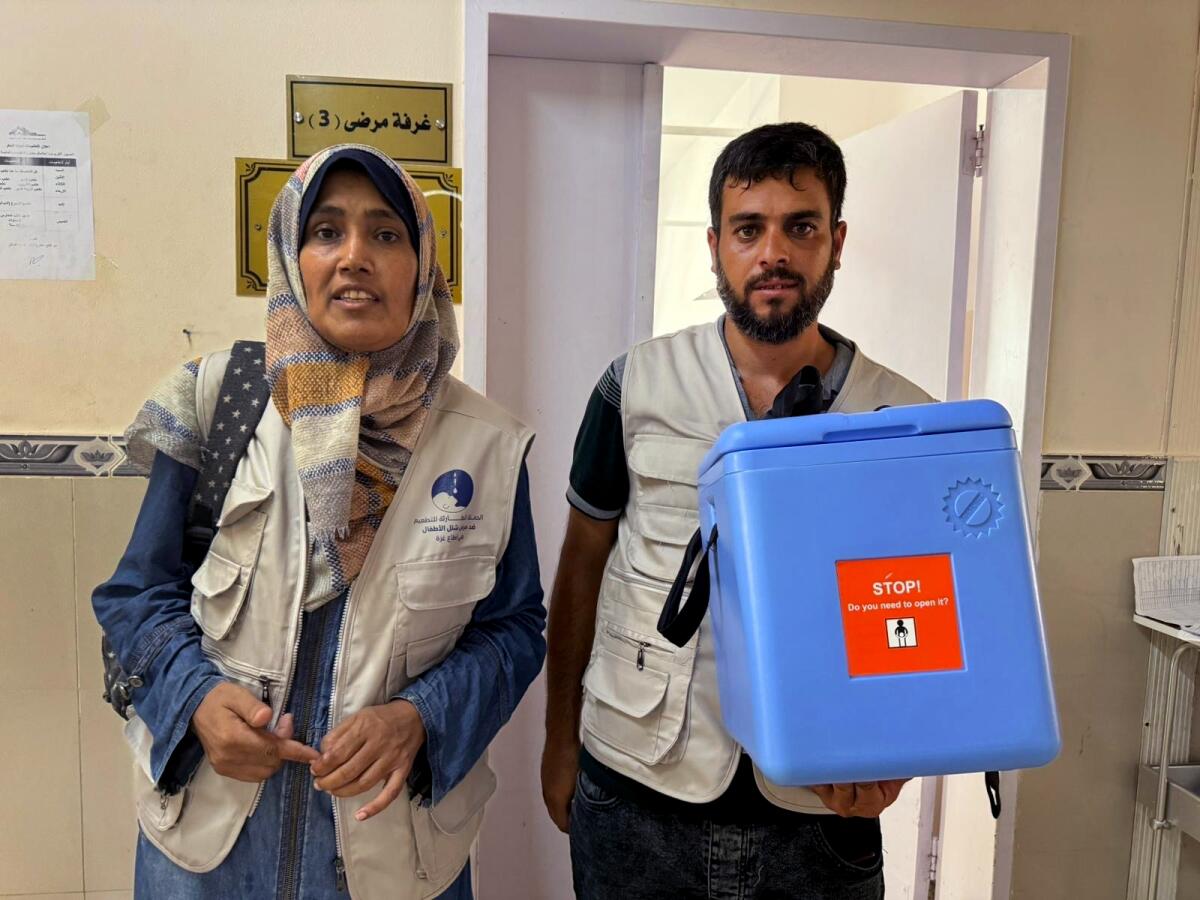
“It has been extremely encouraging to see thousands of children being able to access polio vaccines, with the support of their resilient families and courageous health workers,” said Dr. Richard Peeperkorn, the WHO representative for the Palestinian territories.
Humanitarian workers, however, can only hope the massive campaign is not too late. Epidemiologists say even a single confirmed case signifies that the virus is already circulating, perhaps widely.
Even before an 11-month-old boy whose family lived in a tent encampment in central Gaza tested positive for polio in August — the enclave’s first diagnosis in a quarter-century — the virus had already been found in Gaza’s wastewater, the U.N. said.
The baby boy, Abdel-Rahman Abu El-Jedian, who had suddenly stopped crawling and moving about, was reported to be stable as the vaccination campaign got under way last week. But his left leg was still paralyzed.
Special correspondent Shbair reported from Khan Yunis and Times staff writer King from Jerusalem.
More to Read
Sign up for Essential California
The most important California stories and recommendations in your inbox every morning.
You may occasionally receive promotional content from the Los Angeles Times.
